Trust is fundamental to working relationships. It allows periods of difficulty to be navigated in the mutual belief that parties have each other’s best interests at heart.
Sadly, we have reached a point in Irish agriculture where many of the key stakeholders look across the table and simply don’t trust those on the other side.
When it comes to farmers and their view of the State, it’s hard to blame them at this stage. There has been a litany of missteps since Ireland first started encouraging farmers to put their time and money into environmental actions.
Land designation without appropriate information or compensation was the original sin. Lines were drawn around farms and long list of actions became prescribed overnight. The shadow of this episode hangs over the sentiment and politics of upland farming to this day.
Schemes
Agri-environmental schemes, on the other hand, started well with the Rural Environment Protection Scheme (REPS) in the 1990s. Although outcomes for nature were patchy, REPS paid well, and was loved by those who engaged with it.
It wasn’t to last. Since REPS, the State has rolled out successive agri-environmental schemes, each one less profitable in real terms than the last, and each with ever-increasing amounts of bureaucracy.
This culminated in the release of ACRES in 2022. To its credit, ACRES brought about a step change in terms of how we pay for nature, using a results-based, rather than action-based system.
On the downside however (and much to the disappointment of those who helped design it) the payments were capped, meaning farmers who could provide high-quality habitats at scale were not incentivised to do so.
Additionally, the political ambition to make ACRES available to as many farmers as possible outstripped the system’s capacity to deal with them. As it creaked and groaned under the weight of applicants, farmers were left out of pocket for work which they had already done and paid for.
Sadly, ACRES also displaced successful existing local schemes, despite clear warnings from agri-environmental leaders. Disappointment was palpable at ground level. At a 2023 IFA hustings in Clarecastle, Micheal Davoren stood and said: “Everyone is saying we need another REPS, but we had it here with Burren LIFE, and it was taken away.”
Forestry
Similar erosion of trust has been experienced by farmers who took the leap into woodland creation. The permanent land use change element of forestry is no small thing for landowners, so when the goalposts got shifted along the way, trust was damaged.
Around 2010, forestry premiums were reduced both in amount and duration. This was on top of the fact that the premiums were never index-linked in the first place.
When trees were hit by disease such as phytophtora in Larch, or chalara (dieback) in ash, farmers were left for years without effective remediation. In 2021 many farmers who went to harvest their trees, a source of important revenue, found themselves snarled up in the licencing debacle.
Finally, for those still willing to consider afforestation, the simple act of getting a licence became an administrative fiasco. In many cases a simple yes/no decision took years to get.
The combination of all these factors has had devastating impact on farmers’ perception of a land use already viewed with scepticism.
Trust between people
Trust is formed between people, not paperwork or computer systems.
Most of the issues in forestry and agri-environmental schemes arise from systems designed to address what is undoubtedly a lack of trust on the part of state agencies of those close to the ground, be they farmers, foresters, advisors or contractors.
Whilst most of these stakeholders are decent actors seeking to do the right thing, there remains a cohort who consistently and blatantly break the rules. The response by the State is to introduce more checks, more paperworkmore red tape.
To my mind, this makes things worse, making landowners see their interlocutors as faceless, nameless bureaucrats, rather than fellow citizens working to similar ends. Of course, we need accountability, data, and documentation, but these should be aides to relationships, not replacements for them.
The issues with nature restoration aren’t necessarily technical. We know how to rewet bogs, or restore old woodlands. What is difficult is demonstrating to landowners that their interests will be well served by engaging in nature restoration. I believe this can only happen through long-term commitments and trusting relationships. Currently, this is a challenge as people working on the ground are stretched. Every front-facing role from ASSAP, to farm/forestry advisors, to ACRES staff is under-resourced.
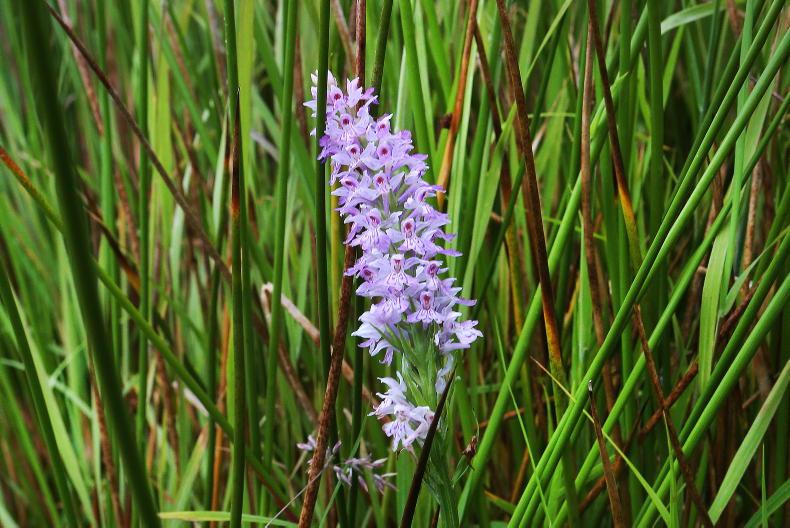
Orchids are a sign of rich biodiversity on the Blair family farm at Ballykelly, Co Derry. \ Houston Green
The State is attempting to deliver complex change at a precedented scale using contracted-out five-year projects. Given the scale of the challenge and farmers’ generational view of the land, this just won’t cut it. We need to go back to the to the days of high-quality, regionally distributed jobs, something anathema to recent Irish governments. Someone close to Government told me recently it would be easier to get €3bn for a one-off project budget, than €3m committed to long-term spending. The State has said the loss of biodiversity is a crisis. Let’s start treating it like one.
Trust is fundamental to working relationships. It allows periods of difficulty to be navigated in the mutual belief that parties have each other’s best interests at heart.
Sadly, we have reached a point in Irish agriculture where many of the key stakeholders look across the table and simply don’t trust those on the other side.
When it comes to farmers and their view of the State, it’s hard to blame them at this stage. There has been a litany of missteps since Ireland first started encouraging farmers to put their time and money into environmental actions.
Land designation without appropriate information or compensation was the original sin. Lines were drawn around farms and long list of actions became prescribed overnight. The shadow of this episode hangs over the sentiment and politics of upland farming to this day.
Schemes
Agri-environmental schemes, on the other hand, started well with the Rural Environment Protection Scheme (REPS) in the 1990s. Although outcomes for nature were patchy, REPS paid well, and was loved by those who engaged with it.
It wasn’t to last. Since REPS, the State has rolled out successive agri-environmental schemes, each one less profitable in real terms than the last, and each with ever-increasing amounts of bureaucracy.
This culminated in the release of ACRES in 2022. To its credit, ACRES brought about a step change in terms of how we pay for nature, using a results-based, rather than action-based system.
On the downside however (and much to the disappointment of those who helped design it) the payments were capped, meaning farmers who could provide high-quality habitats at scale were not incentivised to do so.
Additionally, the political ambition to make ACRES available to as many farmers as possible outstripped the system’s capacity to deal with them. As it creaked and groaned under the weight of applicants, farmers were left out of pocket for work which they had already done and paid for.
Sadly, ACRES also displaced successful existing local schemes, despite clear warnings from agri-environmental leaders. Disappointment was palpable at ground level. At a 2023 IFA hustings in Clarecastle, Micheal Davoren stood and said: “Everyone is saying we need another REPS, but we had it here with Burren LIFE, and it was taken away.”
Forestry
Similar erosion of trust has been experienced by farmers who took the leap into woodland creation. The permanent land use change element of forestry is no small thing for landowners, so when the goalposts got shifted along the way, trust was damaged.
Around 2010, forestry premiums were reduced both in amount and duration. This was on top of the fact that the premiums were never index-linked in the first place.
When trees were hit by disease such as phytophtora in Larch, or chalara (dieback) in ash, farmers were left for years without effective remediation. In 2021 many farmers who went to harvest their trees, a source of important revenue, found themselves snarled up in the licencing debacle.
Finally, for those still willing to consider afforestation, the simple act of getting a licence became an administrative fiasco. In many cases a simple yes/no decision took years to get.
The combination of all these factors has had devastating impact on farmers’ perception of a land use already viewed with scepticism.
Trust between people
Trust is formed between people, not paperwork or computer systems.
Most of the issues in forestry and agri-environmental schemes arise from systems designed to address what is undoubtedly a lack of trust on the part of state agencies of those close to the ground, be they farmers, foresters, advisors or contractors.
Whilst most of these stakeholders are decent actors seeking to do the right thing, there remains a cohort who consistently and blatantly break the rules. The response by the State is to introduce more checks, more paperworkmore red tape.
To my mind, this makes things worse, making landowners see their interlocutors as faceless, nameless bureaucrats, rather than fellow citizens working to similar ends. Of course, we need accountability, data, and documentation, but these should be aides to relationships, not replacements for them.
The issues with nature restoration aren’t necessarily technical. We know how to rewet bogs, or restore old woodlands. What is difficult is demonstrating to landowners that their interests will be well served by engaging in nature restoration. I believe this can only happen through long-term commitments and trusting relationships. Currently, this is a challenge as people working on the ground are stretched. Every front-facing role from ASSAP, to farm/forestry advisors, to ACRES staff is under-resourced.

Orchids are a sign of rich biodiversity on the Blair family farm at Ballykelly, Co Derry. \ Houston Green
The State is attempting to deliver complex change at a precedented scale using contracted-out five-year projects. Given the scale of the challenge and farmers’ generational view of the land, this just won’t cut it. We need to go back to the to the days of high-quality, regionally distributed jobs, something anathema to recent Irish governments. Someone close to Government told me recently it would be easier to get €3bn for a one-off project budget, than €3m committed to long-term spending. The State has said the loss of biodiversity is a crisis. Let’s start treating it like one.






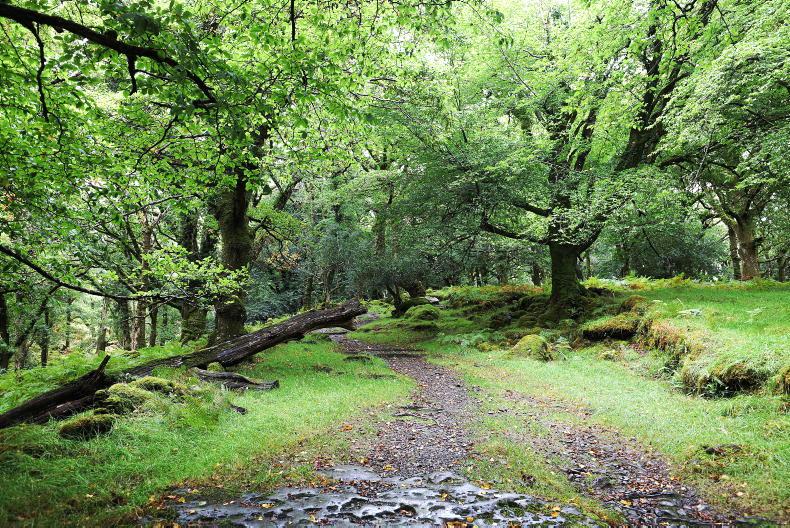
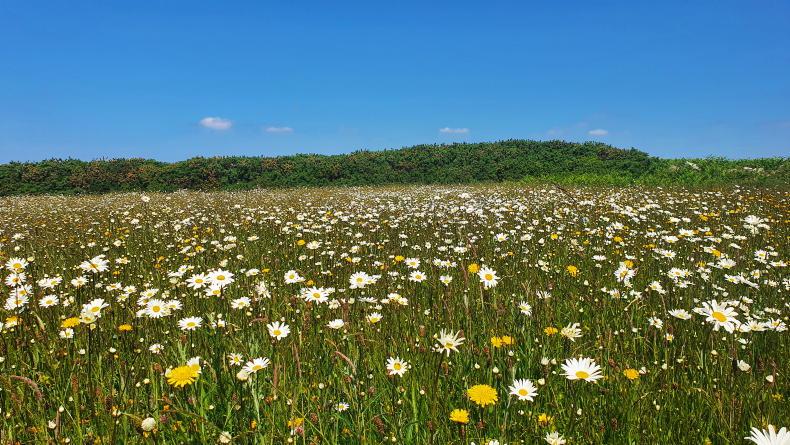
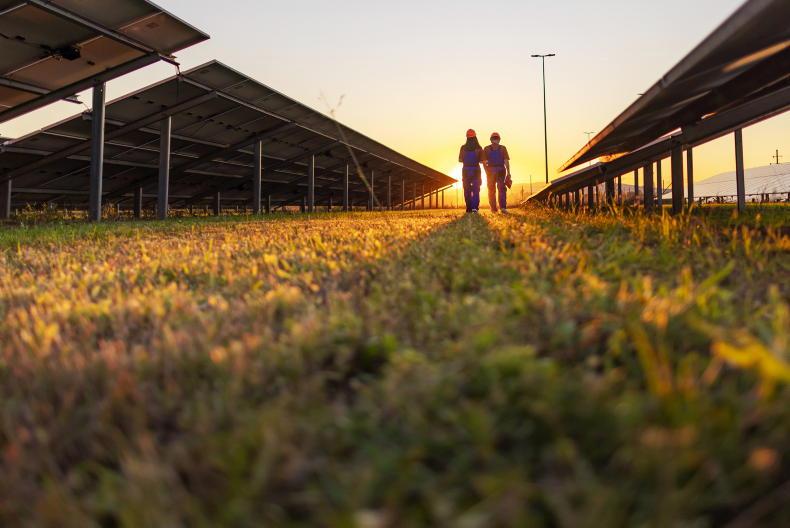
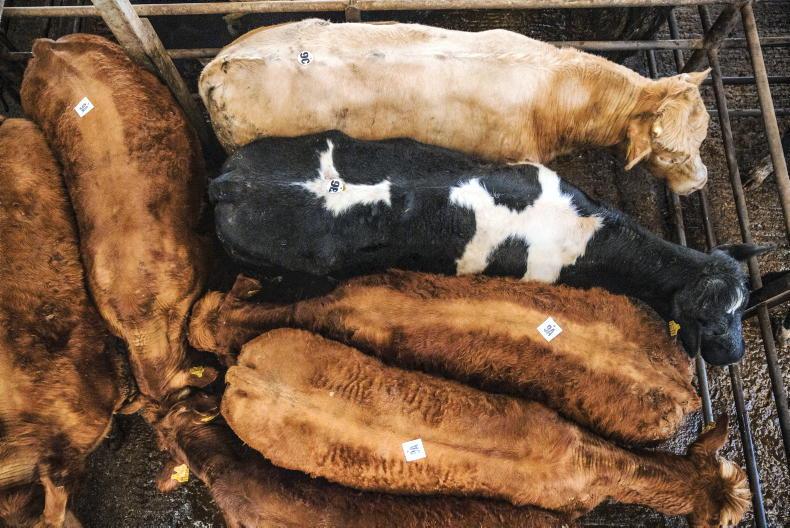
SHARING OPTIONS